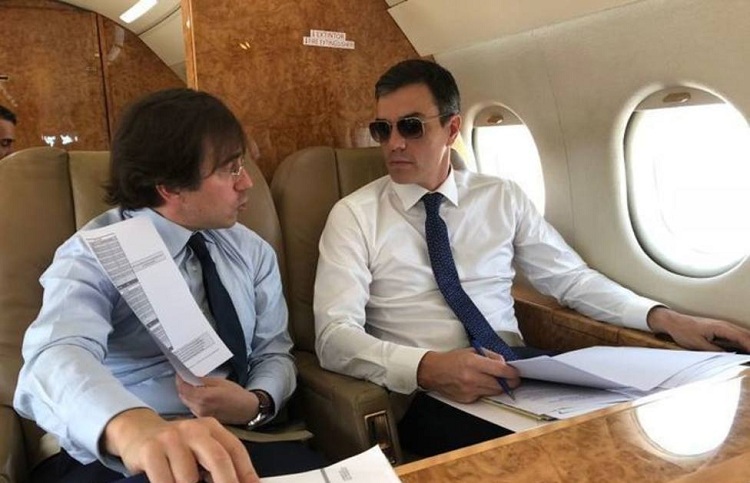Luis Ayllón
A greater connection between Moncloa and the Palace of Santa Cruz is expected to be one of the consequences of the appointment as Foreign Affairs Minister of José Manuel Albares, a person who enjoys the full confidence of Pedro Sánchez, whom the President of the Government is now making up for the disappointment of the post going to Arancha González Laya.
At the beginning of 2020, when, after winning the elections, Sánchez was preparing to form a government, the name most often heard to take charge of the Foreign Affairs portfolio was that of José Manuel Albares. Not in vain, he was the person who had been in charge of the chief executive’s international agenda since he had arrived at La Moncloa in 2017, through a motion of censure, and also a member of the diplomatic career.
It came as a great surprise to learn that the person chosen to head the Palacio de Santa Cruz was Arancha González Laya, a European civil servant who is as expert in international trade as she is unknown to Spaniards, except for some, such as Nadia Calviño, who is considered to be her advisor.
González Laya’s time at the Ministry of Foreign Affairs cannot be said to have been a success, either in terms of achieving greater international weight for Spain or in terms of the functioning of the Department, with whose workers she never managed to get on the same wavelength.
Sánchez is now trying to rectify that decision, which has proved to be so ill-advised. He had before him the possibility of replacing González Laya with someone like Luis Planas, with diplomatic experience as ambassador to Morocco and the European Union, but he has preferred to keep him in Agriculture and has opted for what, back in 2020, seemed the most natural thing to do: appoint Albares.
Pedro Sánchez has known José Manuel Albares for a long time and has followed his advice on foreign policy, especially since 2015 when he joined his election campaign team. When he came to power, he put him at the head of the International Policy department of the Presidency of the Government, where he had to suffer the manoeuvres of Iván Redondo to gain absolute control of all matters passing through Moncloa.
The consolation prize for Albares when Sánchez decided in favour of Arancha González Laya was that of ambassador to Paris, one of the most coveted posts for Spanish diplomats. From there he has followed the vicissitudes of foreign policy, without directly influencing it, but in contact with Sánchez, who also commissioned him to make the international paper for the next PSOE Congress in the autumn.
As a diplomat, Albares knows the Ministry well, having worked in different positions, and is well acquainted with his colleagues and the needs they face, among other things from a logistical point of view and in terms of reconciling family life, if decisions on appointments are not made in time.
González Laya kept the choice of some thirty new ambassadors unresolved for more than five months, and even today it is still not known who will head five embassies, some of them as important as London, which has been without an ambassador since the beginning of February.
This will be one of the first tasks to be tackled by Albares, to whom González Laya also leaves as a legacy a deteriorated relationship with Morocco, due to a rather defective management of the case of “Brahim Ghali”, the Polisario Front leader, who is being held in a Spanish hospital. The crisis with Rabat remains open and Albares will have to seek formulas to try to resolve it, although the success of his efforts will not depend on him alone.
The new minister is faced with the task of recovering Spain’s international weight, which has long since lost the ability to lead initiatives, especially in areas such as Latin America, where Spain once had greater influence, or to place Spaniards at the head of international organisations.
The greater harmony between Sánchez and Albares, together with the absence of Iván Redondo in the president’s Cabinet, bodes well for better coordination of international policy issues, at a time, moreover, when the chief executive is beginning to boost his foreign agenda. In fact, last week he travelled to the Baltic States; the following week he will travel to the United States, although, for now, without meeting with President Joe Biden; and, for the end of August, after the holiday period, a tour of Africa is in preparation, which may include Egypt and South Africa.






